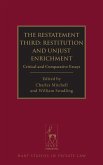This work examines in detail the English doctrine of anticipatory breach, a hugely important subject in terms of both contract theory and commercial practice. It fills a significant gap in the existing literature with a comprehensive, systematic and in-depth treatment of the subject. The book not only restates the doctrine of anticipatory breach but also rejuvenates it, developing the proposition that the doctrine is essentially a mechanism for sanctioning present contractual remedies for future breaches. This proposition is developed in four parts consisting of nine chapters, which cover between them various aspects of the doctrine of anticipatory breach: historical genesis, theoretical characterisations, terminology, the constitution of an anticipatory breach, the defence of anticipated breach, the principle of election, the peculiarities of a right to claim damages, the assessment of damages, the victim's ability to continue with its performance and to claim the contract price when it is due, etc. Above all the book presents a carefully engineered critical review of the doctrine of anticipatory breach as it stands, challenging the misconceptions with which it was historically associated, the obscurity and precariousness of its theoretical foundation and the resulting inconsistency and inflexibility in its application. Instead, the author argues for a reformulation which follows a more rational, coherent and refined theoretical framework. This book is written in clear, straightforward language, and will appeal to academics, practitioners and law students alike.
Hinweis: Dieser Artikel kann nur an eine deutsche Lieferadresse ausgeliefert werden.
Hinweis: Dieser Artikel kann nur an eine deutsche Lieferadresse ausgeliefert werden.








